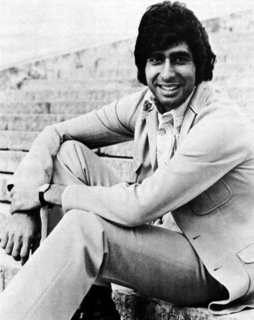A Quote by Terry Pratchett
The bravest person I've ever met was a young boy going through massive amounts of treatment for a very rare, complex and unpleasant disease. I last saw him at a Discworld convention, where he chose to take part in a game as an assassin. He died not long afterwards, and I wish I had his fortitude and sense of style.
Related Quotes
He chose the boy he thought most likely to be a danger to him," said Dumbledore. And notice this, Harry. He chose, not the pureblood (which, according to his creed, is the only kind of wizard worth being or knowing), but the half-blood, like himself. He saw himself in you before he had ever seen you, and in marking you with that scar, he did not kill you, as he intended, but gave you powers, and a future, which have fitted you to escape him not once, but four times so far — something that neither your parents, nor Neville’s parents, ever achieved.
Atten. Pray of what disease did Mr. Badman die, for now I perceive we are come up to his death? Wise. I cannot so properly say that he died of one disease, for there were many that had consented, and laid their heads together to bring him to his end. He was dropsical, he was consumptive, he was surfeited, was gouty, and, as some say, he had a tang of the pox in his bowels. Yet the captain of all these men of death that came against him to take him away, was the consumption, for it was that that brought him down to the grave.
I carried Rudy softly through the broken street...with him I tried a little harder at comforting. I watched the contents of his soul for a moment and saw a black-painted boy calling the name Jesse Owens as he ran through an imaginary tape. I saw him hip-deep in some icy water, chasing a book, and I saw a boy lying in bed, imagining how a kiss would taste from his glorious next-door neighbor. He does something to me, that boy. Every time. It's his only detriment. He steps on my heart. He makes me cry.
She saw him the first day on board, and then her heart sank into her shoes as she realized at last how much she wanted him. No matter what his past was, no matter what he had done. Which was not to say that she would ever let him know, but only that he moved her chemically more than anyone she had ever met, that all other men seemed pale beside him.
I surrender this rifle to you through my young son, whom I now desire to teach in this manner that he has become a friend of the Americans. I wish him to learn the habits of the whites and to be educated as their sons are educated. I wish it to be remembered that I was the last man of my tribe to surrender my rifle. This boy has given it to you, and he now wants to know how he is going to make a living.
The musical flags of the world should fly at half mast because truly one of the greatest guitarists in the world and king of the blues has died. I have cherished him and so has the rest of the world who knew him and loved him for his entire career. As we pain, we must celebrate that his music, his style of playing and singing will last forever, from the recordings that he has done and the influence that he has had and will have on guitarists all over this planet. Long live the spirit of B.B. King.
The bin Laden I met each time was in a simple Saudi white robe, with a simple, cheap kafiya and very cheap plastic sandals. But a videotape released before September 11, which I saw on Lebanese television, had him in a gold embroidered robe. When I saw this, I thought, whoa, has this guy changed? I wouldn't have imagined him ever appearing in such golden robes when I met him.
It would perhaps not be amiss to point out that he had always tried to be a good dog. He had tried to do all the things his MAN and his WOMAN, and most of all his BOY, had asked or expected of him. He would have died for them, if that had been required. He had never wanted to kill anybody. He had been struck by something, possibly destiny, or fate, or only a degenerative nerve disease called rabies. Free will was not a factor.
School days, I believe, are the unhappiest in the whole span of human existence. They are full of dull, unintelligible tasks, new and unpleasant ordinances, brutal violations of common sense and common decency. It doesn't take a reasonably bright boy long to discover that most of what is rammed into him is nonsense, and that no one really cares very much whether he learns it or not.
I remember the day before my dad died, I was in a hospital room with him, and he had lived a long life. He was 94, and I helped him get up, and there were two windows separated by the partition. I took him to the first window, and he kind of found his way to the second window, and on the way there was a mirror, and he looked into it, and I saw through the corner of my eye, I remember the look on his face. What came over his face was "So I'm here. I've crossed that bridge."
I -- I alone know how to mourn for him as he deserves.' But while we were still shaking hands, such a look of awful desolation came upon her face that I perceived she was one of those creatures that are not the playthings of Time. For her he had died only yesterday. And, by Jove! the impression was so powerful that for me, too, he seemed to have died only yesterday -- nay, this very minute. I saw her and him in the same instant of time -- his death and her sorrow -- I saw her sorrow in the very moment of his death. Do you understand? I saw them together -- I heard them together.
For his thirtieth birthday he had filled a whole night-club off Regent Street; people had been queuing on the pavement to get in. The SIM card of his mobile phone in his pocket was overflowing with telephone numbers of all the hundreds of people he had met in the last ten years, and yet the only person he had ever wanted to talk to in all that time was standing now in the very next room.

































